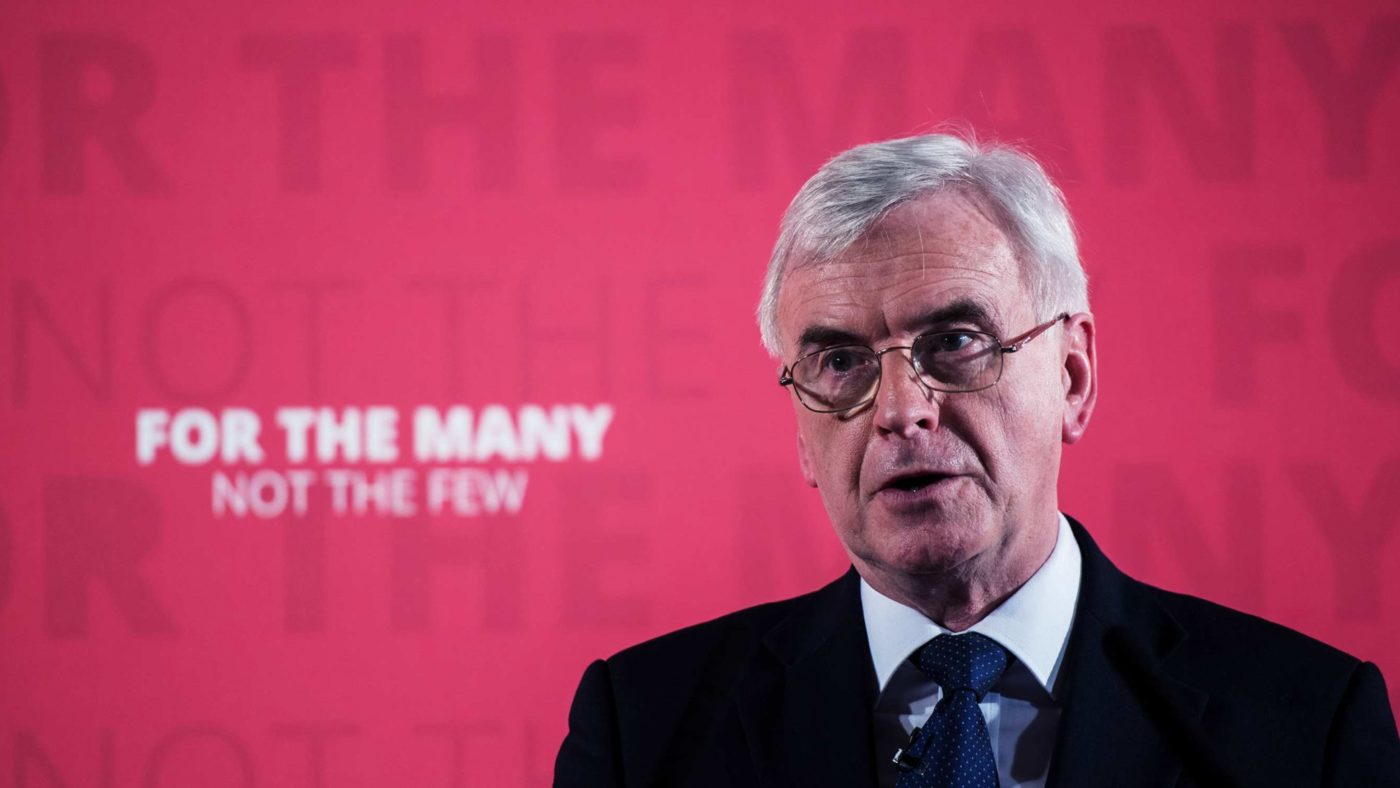When the facts change, Jeremy Corbyn and John McDonnell refuse to change their minds. I am not referring to their closely analysed stances on Brexit, but the consistent commitment to bad ideas that has been the defining feature of their careers. From East Germany to Venezuela, as the evidence that socialism doesn’t work has piled up over the years, they have not swerved in their commitment to the cause.
For that reason, their ascent to the top of the British left has been a lonely one. And now that they are at the summit, they remain remarkably candid about their objectives. Last spring, the Shadow Chancellor described his job as overthrowing capitalism on one of the most-watched politics programmes on British television. He stands by that characterisation.
If you want to find the real McDonnell, or the real Corbyn, you really don’t have to look very hard. A man willing to wave Mao’s Little Red Book in the House of Commons, as McDonnell did shortly after being appointed Shadow Chancellor, can hardly be said to be self-conscious about his beliefs.
And yet, startlingly, the Labour leadership is still able to have it both ways. Corbyn and McDonnell are happy to describe Britain as a country crying out for radical change – and make clear their willingness to deliver that transformation.
Use the R-word in a less complimentary sense, however, and they take great offence. Radical? Moi? We’re just undoing the reckless ideologically-driven something-Thatcherite austerity-something something-neoliberalism. Attlee would think our proposals were really rather modest. And so on.
The half-hearted attempt to disguise his true politics is why McDonnell should not have been taken at all seriously last week when he said: ‘I want to make it absolutely explicit that capital controls would not happen under a Labour government. We don’t see any necessity for them.’
The Shadow Chancellor’s City charm offensive isn’t going especially well. It can’t help that he called the 2008 crash “a classic capitalist crisis” that was not to be wasted.
Of course, McDonnell’s cast-iron sounding promise on capital controls comes with an escape route. He doesn’t see any necessity for them. But what happens when that changes?
What happens when the newly-installed Chancellor is welcomed to Number 11 by a run on the pound? Or when Labour hikes the top rate of tax?
Pro-Corbyn economist and New Statesman columnist Grace Blakeley argued recently that a 70 per cent income tax rate would be the best course of action for Britain, but would have to be accompanied by constraints on capital mobility to avoid the country being ‘punished severely by “the markets”‘.
As with capital controls, so too with renationalisation. Platitudes about public ownership, lower fares and investment are one thing. But the mask slips when McDonnell is asked how much the move will cost. “Parliament will set the price,” is his ominous answer.
You may not think these are the most important, or the most exciting debates in British politics. But if they are as relaxed about property rights as they sound, why assume they will stop there? Like every other version of socialism ever tried, the essential nature of Corbyn and McDonnell’s worldview is built on coercion, not compassion.
And if every other version of socialism ever tried is anything to go by, it won’t end well.
Starting with a conviction of their own righteousness and a mistaken belief that The People are a homogenous group whose economic interests are aligned and easily ascertained, it eventually collides with reality. And when it does, do you expect two men who don’t appear to have ever changed their mind about anything to recognise their mistake?
CapX depends on the generosity of its readers. If you value what we do, please consider making a donation.


